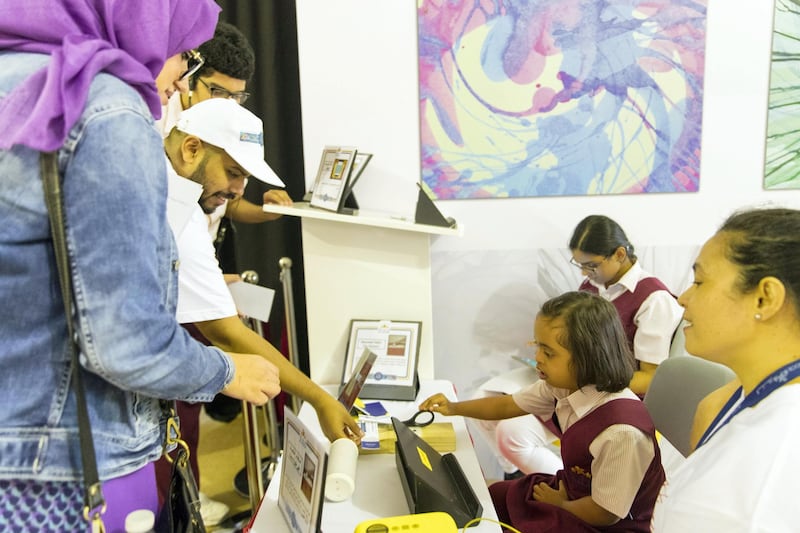Parents of Emirati children with special needs will be encouraged after this week's discussion by the Federal National Council about waiving means testing for financial support. The FNC has asked the Ministry of Community Development to change the rules. Under current regulations, any child whose father earned more than Dh20,000 a month was exempt from receiving government benefits. As the FNC heard, this was tough on families whose children needed round-the-clock care or who had other able-bodied children to care for, as the financial aid did not stretch far enough. Those who earned just over the limit often cut back on extra support, such as carers or one-on-one tuition, simply because they were deemed a luxury rather than a basic necessity.
_________________
Read more
[ Disabled access makes good business sense, say experts ]
[ World's largest library of Braille books comes to the UAE ]
_________________
There are about 16,000 people with disabilities registered in the UAE, of whom nearly two-thirds are Emirati, according to figures from the Ministry of Community Development. Facilities for those who are disabled are evolving in the UAE but there is still room for improvement, something which has been recognised by officials. There are already a number of charities working to ease the lives of those with physical or learning disabilities, among them the Al Noor Training Centre for Children with Special Needs in Dubai, where children use assistive technology to paint, play music and operate electronic devices. In October, the first hackathon in the Middle East saw students and professionals coming together and pairing up with people with special needs to design gadgets to make their lives easier. Those initiatives are being matched by the Government, which recognises the call to adapt to the needs of its population. Laws and ministerial decrees issued in the last decade have enshrined the rights of disabled workers. In the latest development, the Ministry of Community Development has been asked to provide all Emirati parents of disabled children with support to enable them to have "decent, sustainable" lives.
All these initiatives not only enhance the quality of life for those most in need, but boost their self-esteem and give them independence as well as enabling them to make decisions for themselves and function at every level of society. Starting those habits at an early age is to be welcomed. It means that sense of autonomy and freedom will be there with those children for life, giving them a chance to contribute in a meaningful way – and that can only be to the benefit of society.





